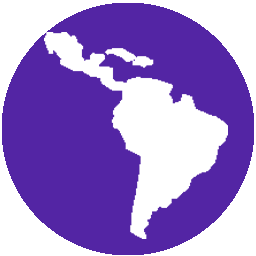
Rest of Latin America
On June 4, the International Commission against Impunity in El Salvador (CICIES in Spanish) ceased working after a series of accusations and counter accusations with the government of President Nayib Bukele. It follows an established trend in the region, where in the last year and a half similar commissions in Guatemala and Honduras have also been stymied by government decisions.
The first instance of note was that of the International Commission against Impunity in Guatemala (CICIG in Spanish), which closed its doors in September 2019 after clashing with then Guatemalan President Jimmy Morales. The second was the shutting of the Support Mission against Corruption and Impunity in Honduras (MACCIH in Spanish) in January 2020 after it was blocked from renewing its mandate. What exactly happened here? What commonalities do these events have? How do they affect civic space, and what alternatives is civil society offering?
CICIG, expelled from Guatemala by order of the Executive
CICIG was created as a result of an agreement signed by the then president of Guatemala, Oscar Berger, with the UN in 2006. Its purpose was to collaborate in the investigation and criminal prosecution of the “Illegal Security Forces and Clandestine Security Apparatuses”. The aim was to determine whether they committed illegal actions that violated civil and political rights, whether they were directly or indirectly linked to State agents, or whether they had the capacity to evade responsibility for their illegal actions.
Over the course of his administration, several corruption cases were presented including ones involving former presidents and vice presidents such as Alfonso Portillo, Otto Pérez Molina and Roxana Baldetti. Yet this stopped during the presidency of Jimmy Morales. Allegations of corruption leveled against Morales as well as his brother and son, and which were joined by calls for the former to step down, led to Morales waging a campaign against the Commission and not renewing its mandate.
MACCIH – thwarted by the Honduran Congress
MACCIH was created in 2016 as a result of an agreement signed between the government of Honduras, headed by president Juan Orlando Hernández, and the OAS. Its objectives were clear: to actively support and collaborate with state institutions to prevent, investigate and punish acts of corruption. Delivering on this in practice, however, proved difficult, with its work seen to be accompanied by US driven advocacy under the Obama administration. Hernandez was keen to reign in MACCIH’s power and grant it only a technical advisory capacity.
During its few years of existence, the mission was thus dogged by a lack of resources and persistent state interference which included, for example, efforts to prevent its collaboration with the Special Prosecutorial Unit Against Impunity for Corruption (UFECIC in Spanish). Following a series of emblematic corruption cases, such as the Pandora network of embezzlement of public funds which implicated President Hernández and his wife, in December 2019 Congress voted in favor of recommending the discontinuation of MACCIH arguing that its excessive powers breached the Constitution. In January, it was confirmed that negotiations between Honduras and the OAS had not led to an agreement on continuing with the anti-corruption body.
CICIES – abandoned after just two years
The fate and fortunes of CICIES has many parallels with MACCIH in Honduras. Despite the then presidential candidate Nayib Bukele pledging to back this anti-graft body to root out corruption among the political elites and signing an agreement with the OAS in September 2019 to this effect, in practice its mandate had already by then been restricted.
CICIES itself voiced concerns about this, as did civil society organizations who at the start of 2021 issued joint strong calls for the Commission to be granted more authority. It was at this point that the limits of the government’s political commitment to the body became evident.
With the consolidation of the ruling party after the February legislative elections, the judges of the Constitutional Chamber and the Attorney General were dismissed and CICIES was ‘re-evaluated’ before being shut down in June 2021. Ostensibly, the arguments of the government revolved around the hiring by the Secretary General of the OAS, Luis Almagro, of a politician that was opposed to Bukele, himself now being prosecuted for corruption. However, other factors were likely just as or more important, including the fraught relationship between Bukele and civil society, allegations of corruption relating to the pandemic response, and local and international criticisms following the mentioned decision to oust the country’s magistrates.
Different but similar
With the disappearance of CICIES, the governments of the so-called Northern Triangle of Central America closed a failed chapter on fighting corruption and impunity, all the while amid growing international criticism of the region’s shrinking civic space and democratic backsliding.
Beyond the particularities of each case, it is possible to trace a pattern of shared factors. Understanding these can help us better explain their ineffectiveness as well as the impact of their presence/absence on civic space.
- External pressures. In all three cases, the commissions were created based on agreements with international organizations (UN, OAS) and with pressure from the United States. Although in the case of El Salvador there was ostensible initial homegrown support from President Bukele for the CICIES, this evaporated fast.
- Personal interests. Even when, to a greater or lesser extent, the Executive branches themselves signed up to agreements on these anti-graft commissions, this tenuous support disappeared as soon as government members, their relatives or close associates became directly implicated in subsequent investigations.
The three cases analyzed reveal that external pressure, whether from international organizations or other countries, is not enough to offset a lack of domestic political will for transparency and good governance – this being particularly the case when state backing for anti-corruption is not rooted in a national or cross-cutting commitment spanning different political sectors. Given this, there is a clear need for independent and institutionalized entities within the State whose structure and resources do not depend on executive decisions for their working.
Corruption and its impact on civic space
Acts of corruption and especially systemic corruption undermine citizens’ trust in institutions and deepen the marginalization of the most disadvantaged sectors of society. In contrast, an open, vibrant civic space allows non-state actors (from non-governmental organizations to businesses and citizens) to exercise a role of control and monitoring over their elected representatives and the use of public resources. This includes the right to freedom of expression, association, assembly and privacy.
It is no coincidence, then, that the drift toward impunity seen in the Northern Triangle goes hand in hand with curbs to civic space and, in particular, crackdowns on social organizations working for transparency and accountability in governance. Chilling examples of this include the reform of the NGO Law in Guatemala or the legislative commission of investigation of NGOs in El Salvador.
Civilian Response to State Failure: The Center Against Corruption and Impunity in Northern Central America (CCINOC, in Spanish)
Following the closure of CICIES, 11 civil society organizations based in El Salvador, Guatemala and Honduras announced the creation of a new body called CCINOC, “with the intention of consolidating and managing citizen efforts to counteract the consequences of corruption and impunity in the region”.
This Center aims to act as a ‘civilian alternative’ to the failed anti-corruption commissions, seeking to respond to the same problems as CICIG, MACCIH and CICIES but from a local and civil society vantage point.
Given its recent creation, it is hard to evaluate CCINOC’s likely effectiveness. However, it is a notable statement of intent against the backdrop of growing insecurity for civil society actors in the region –and a further sign that the anti-corruption agenda overall cannot seemingly prosper if subject to volatile and circumstantial politics and if unable to embed new pro-transparency cultures.


